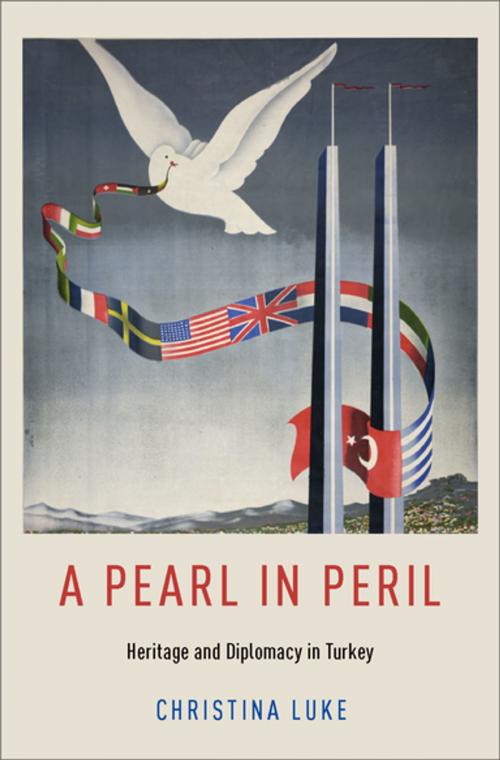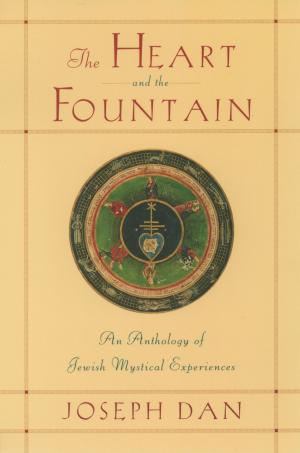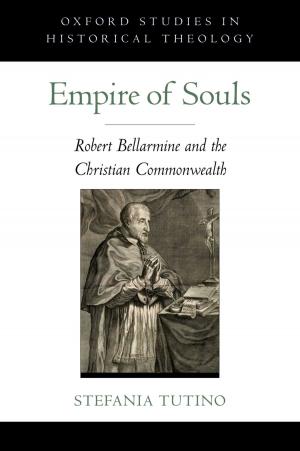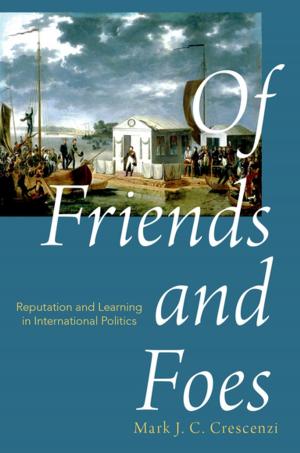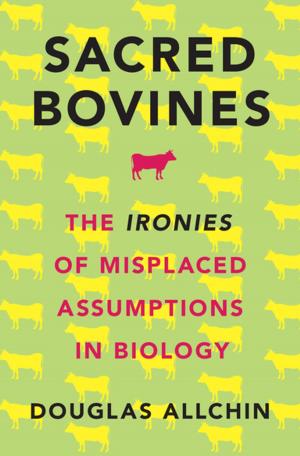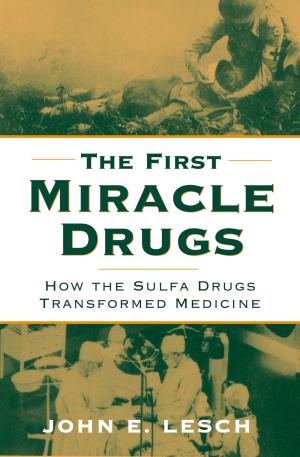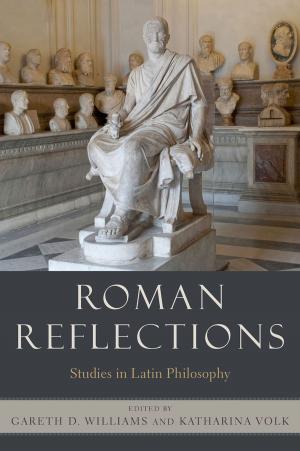A Pearl in Peril
Heritage and Diplomacy in Turkey
Nonfiction, Social & Cultural Studies, Social Science, Archaeology, History, Middle East, Political Science| Author: | Christina Luke | ISBN: | 9780190914417 |
| Publisher: | Oxford University Press | Publication: | December 11, 2018 |
| Imprint: | Oxford University Press | Language: | English |
| Author: | Christina Luke |
| ISBN: | 9780190914417 |
| Publisher: | Oxford University Press |
| Publication: | December 11, 2018 |
| Imprint: | Oxford University Press |
| Language: | English |
Known as "the Pearl of the Mediterranean," Izmir invokes a city and countryside blessed with good fortune; it is known to many as the homeland of Ephesus, Bergama, and Sardis. Yet, Turkey's third largest city has an especially vexed past. The Greek pursuit of the Megali Idea leveraged Classical history for 19th century political gains, and in so doing also foreshadowed the "Asia Minor Catastrophe." Princeton University's work at Sardis played into the duplicitous agendas of western archaeologists, learned societies, and diplomats seeking to structure heritage policy and international regulations in their favor, from the 1919 Paris Peace Conference to the League of Nations. A Pearl in Peril reveals the voices of those on the ground. It also explores how Howard Crosby Butler, William Hepburn Buckler, and William Berry penetrated the inner circle of world leaders, including Woodrow Wilson, Lloyd George, and Eleftherios Venizelos. On the smoldering ashes of Anatolia's scorched earth, foreign intervention continued apace with plans for large-scale development. A Pearl in Peril tackles the untold story of Julian Huxley's admiration of the US Tennessee Valley Authority's "principals of persuasion" in the context of the industrial landscapes and pursuit of modernity in the Aegean. The promise of UNESCO, too, brought diplomacy dollars deployed to foster "mutual understanding" through preservation programs at Sardis. Yet, from this same pot of money came support for "open intelligence" at the international fairs held in Izmir's Kültürpark, a turnkey battleground of the Cold War. Ironically, it was UNESCO's colossal Abu Simbel project in Egypt that led the US to abandon their preservation initiatives in Turkey. Five decades on, groves of organic olives, marble quarries and gold mines not only threaten the erasure of sacred landscapes, but also ensure the livelihood of local communities. Ultimately, A Pearl in Peril offers a bold assessment of diplomatic practice, perspectives of contemporary heritage, and the challenges of unprecedented expansion of city and countryside.
Known as "the Pearl of the Mediterranean," Izmir invokes a city and countryside blessed with good fortune; it is known to many as the homeland of Ephesus, Bergama, and Sardis. Yet, Turkey's third largest city has an especially vexed past. The Greek pursuit of the Megali Idea leveraged Classical history for 19th century political gains, and in so doing also foreshadowed the "Asia Minor Catastrophe." Princeton University's work at Sardis played into the duplicitous agendas of western archaeologists, learned societies, and diplomats seeking to structure heritage policy and international regulations in their favor, from the 1919 Paris Peace Conference to the League of Nations. A Pearl in Peril reveals the voices of those on the ground. It also explores how Howard Crosby Butler, William Hepburn Buckler, and William Berry penetrated the inner circle of world leaders, including Woodrow Wilson, Lloyd George, and Eleftherios Venizelos. On the smoldering ashes of Anatolia's scorched earth, foreign intervention continued apace with plans for large-scale development. A Pearl in Peril tackles the untold story of Julian Huxley's admiration of the US Tennessee Valley Authority's "principals of persuasion" in the context of the industrial landscapes and pursuit of modernity in the Aegean. The promise of UNESCO, too, brought diplomacy dollars deployed to foster "mutual understanding" through preservation programs at Sardis. Yet, from this same pot of money came support for "open intelligence" at the international fairs held in Izmir's Kültürpark, a turnkey battleground of the Cold War. Ironically, it was UNESCO's colossal Abu Simbel project in Egypt that led the US to abandon their preservation initiatives in Turkey. Five decades on, groves of organic olives, marble quarries and gold mines not only threaten the erasure of sacred landscapes, but also ensure the livelihood of local communities. Ultimately, A Pearl in Peril offers a bold assessment of diplomatic practice, perspectives of contemporary heritage, and the challenges of unprecedented expansion of city and countryside.
